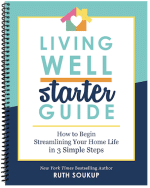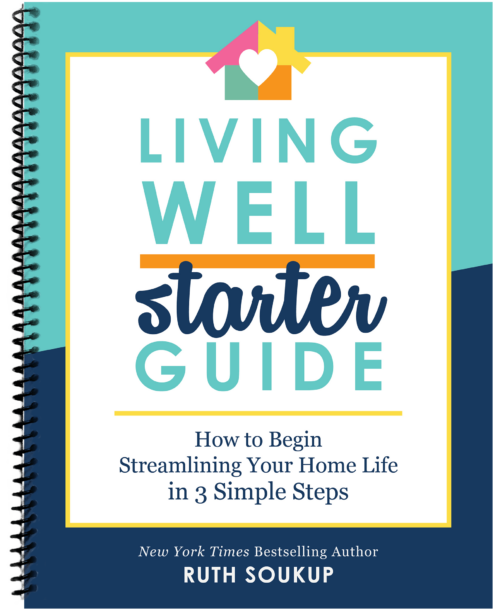Looking for new ways to create a morning routine? Here are 6 simple steps to make your morning run smoothly and your day start stress-free.
Do you ever wish you could run your mornings on autopilot?
Sometimes the sheer number of things that have to get done before the day officially begins can feel like a full day’s work! This is especially true if your morning routine includes not just getting yourself out the door, but one or more little people as well.
How to Create a Morning Routine That Works for You
Wouldn’t it be nice if there were some way to plug in a simple, easy-to-execute approach that would literally function like an autopilot? While your mornings may never run themselves, getting things to run a little smoother is possible. Like most things in life, it is a matter of some forethought and a little pre-planning, paired with a determination to make it work. Here are six steps to help you gain control over your morning melee and help create a morning routine that truly works for you and your family:
1. Know what you’re up against.
The first key to a workable morning routine is allowing enough time for it–which often depends on how many people you have to see out the door! If all you’re dealing with is getting yourself out of bed and presentable, you can probably afford to sleep a tad longer than a mom with four school-aged children to take care of before she leaves for work herself. But start there. First, write out a list of everything that needs to be done for everyone. Next, determine your family’s “ZERO” hour–the time you have to be out of the house–and then work backward… and that’s the hour you need to “start the ball rolling.”
This handy morning routine brainstorm countdown sheet can help you determine your family’s own zero hour, plus figure out exactly what needs to happen to get all of you out the door on time.
Be sure to allow for the unexpected in your schedule as well: Murphy”>know.) So once you’ve decided on a crawling-out-of-bed time, set your alarm for fifteen minutes earlier than that, with a back up just in case. If getting out of bed in the morning is a big problem for you, you may want to try the SleepCycle app, which uses your iPhone to track your sleep cycle and wakes you up during your lightest sleep phase within a specified time period. I have been using it for about a month and I have to say, it is pretty amazing!
2. Keep it simple
This may sound like a contradiction to #1 above, but it’s not. There is a big difference between what you need to do and what you’d like to do every morning. If you think you should work out first thing in the morning, but it means you have to rise bleary-eyed at 4 a.m.—assess whether you can’t work out later in the day. You don’t have to clean the bathroom from top to bottom after everyone’s showered—just wipe it down and neaten a bit. You don’t have to do all the dishes before work; just load the dishwasher (start it if it’s full) so it’s ready to go for the evening.
There are some small home details you’ll want to attend to, of course, such as checking your dinner menu, moving things from freezer to fridge for defrosting, or assembling items in a crockpot will make sure the end of the day runs well, too. And certain things (walking a dog, caring for livestock on a farm) will always be non-negotiable—but keep those must-dos to a minimum and you won’t be tired or stressed before the day actually starts!
3. Prepare in advance.
Coordinating a morning routine for several people can be daunting if too much is crammed into a narrow time frame. So once you’ve got your tasks for the zero hour written out, figure out which items can be done the night before, or even on the weekend as part of a Sunday Prep plan.
For instance, if five people are getting ready for school or work with only one bathroom, some should shower or bathe the night before. If your kids are old enough to make their own lunches, have them do so before bed. Layout your clothes for the next day in advance—something that also allows you to make any needed repairs before you’re too pressed for time to do so. If you can’t see straight without coffee, program the coffeemaker to start when the alarm goes off. In other words, a little anticipation can be a great time and energy saver for everyone.
4. Let the outside world wait.
Of course, once you have your routine in place, there are a few other steps to keep in mind to make sure your routine actually works for you. One is to limit your access to the rest of the world—at least temporarily. Many people like to wake to the news every day or watch a morning show while they get ready. Unfortunately, it can be all too easy to get sucked into an interesting story and lose track of time. Being informed is commendable; being late for work or school because of it, isn’t! If you must start your day with the news, try to get it through some means that doesn’t slow you down. Better still, put it off until the morning rush is over unless it’s information that actually affects feet-on-pavement; such as school-closing or delay information in bad weather. World events will still be there when you pause for your second cup of coffee!
By the way, the same thing goes for interruptions from the phone or other electronic media. You might not believe what a difference turning OFF cell phones, PDAs, or other communication devices can make until you do it. Once again, it’s not only possible—it’s advisable. Morning isn’t the time to get embroiled in the soap opera that is your best friend’s life, return duty calls to in-laws, or settle a PTA issue with a fellow room mother. If you must have your phone on, screen callers; if nothing’s on fire or no one’s on their way to the ER, catch up later.
5. Leave things the way you want to come home to them.
There are few things nicer to step into after a busy day than an orderly house—and few things more depressing or discouraging than one that’s not. You can have the former, and not the latter, by seeing to a few tiny details every morning. Once you’re dressed, make your bed. The bed is the center of the room and the first thing your eye sees. If it’s messy, your whole room looks bad; if it’s neat, the clutter on your dresser’s less obvious! The same goes for your kitchen sink: give it and the counters a quick swish and it makes the whole kitchen look better. Fold towels neatly, dispose of junk mail… you get the idea.
Look around. Where are the places your eye lands first when you walk in the door? If those are neat when you leave, they’ll give you an instant lift when you get home. Remember, too, these are quick tasks. You don’t have to spend more than five to ten extra minutes—if that—to have a much cleaner feel to your home.
6. Refine, Tweak, Repeat.
Once you’ve determined the best wake-up hour, discovered what items you can accomplish the night before to make the morning run more smoothly, and broken in the rest of the family on this new morning approach, consistency becomes your friend. Routine is called that because it is routine: It’s predictable, reliable, and repeatable. If over time you discover that certain things need to be done in a different order, feel free to adapt them—but give yourself enough repetitions of the first way before you decide on a second or third.
Remember, it takes anywhere from 21 to 30 days to form a new habit. At first, your new schedule will feel uncomfortable and maybe a bit awkward, but that’s no reason to assume it doesn’t work. You’ll know soon enough if it truly doesn’t; until then, give it a chance. It’s a period of adjustment where tweaks that need to happen will become apparent.
Ready…Set…Wake Up!
You may never be a morning person, but you can still have pulled together days with the help of an effective morning routine.
To Recap, Here Are The Ways On How to Create a Morning Routine That Works for You
1. Know what you’re up against.
2. Keep it simple
3. Prepare in advance.
4. Let the outside world wait.
5. Leave things the way you want to come home to them.
6. Refine, Tweak, Repeat.
Other helpful resources:
- How to Organize a Big Project When You’re Feeling Overwhelmed
- Want to Take Control of Your Home Routine? Don’t Miss This!
- The Benefits of a Weekend Routine and How to Make One
If you love this resource, be sure to check out our digital library of helpful tools and resources for cleaning faster, taking control of your budget, organizing your schedule, and getting food on the table easier than ever before.

Click here to get full access to our Home Systems Toolbox now!
PIN FOR LATER

TAKE BACK CONTROL OF YOUR HOME LIFE
 Ever feel like you just can't keep up? Our Living Well Starter Guide will show you how to start streamlining your life in just 3 simple steps. It's a game changer--get it free for a limited time!
Ever feel like you just can't keep up? Our Living Well Starter Guide will show you how to start streamlining your life in just 3 simple steps. It's a game changer--get it free for a limited time!











Loving these tips! I’m constantly refining my morning routines. Life isn’t static so we need to adapt! But one thing never changes, I always make sure to take care of ME first, before everyone and everything else. Teeth brushed, drink lots of water, stretch and whatever else I have time for!
Thank you for the tips! Do you have any tips for creating an evening routine? I find it much easier to create new habits in the morning but a tad difficult at night.